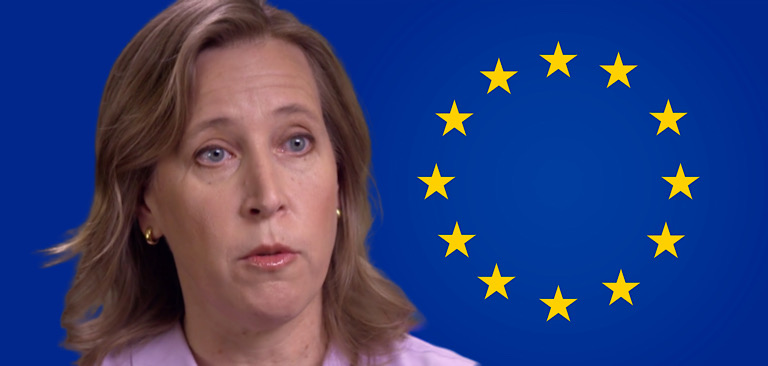Unlike in Europe, the First Amendment of the United States constitution prevents the government from “abridging the freedom of speech.” But YouTube CEO Susan Wojcicki has called for the US government to offer guidance to social media platforms on what constitutes “hate” and “harassment” and pointed to Europe’s strict hate speech laws as an example.
These European laws require social media platforms to remove “hate speech” within 24 hours and France’s hate speech laws were, on the same day of Wojcicki’s statement, deemed to be so “unnecessary, inappropriate, and disproportionate” that they were slapped down by its “supreme court”.
But during an interview with The Washington Post’s Silicon Valley correspondent Elizabeth Dwoskin, Wojcicki highlighted the European model as a point of reference when asking for government guidance.
“If there were guidance from the government about what was hate or what was harassment, we could adopt that and we could use that but there, but there isn’t,” Wojcicki said when discussing YouTube’s controversial hate speech and harassment policies. “So as a result, we’re left having to go and talk to experts and figure out what that policy is.”
Dwoskin followed up by asking if Wojcicki thinks there should be a regulatory body that literally says what hate speech is so that platforms such as Facebook, YouTube, and Twitter can’t make different decisions when moderating hate speech.
“If there was more guidance about what were the definitions, that could be really helpful,” Wojcicki said. “So Europe, for example, does have much stricter hate laws and we were able to implement, we were able to use some of that when we looked at our guidance. But, you know, right now there’s not in most countries and not in the US and so as a result, like, we need to go out and we need to talk to experts and we need to figure that out but, you know, provided that there was guidance that was, that was reasonable and everybody could agree, you know, sure we’d be happy to, happy to implement that and whenever there is guidance, like, we do implement it.”
Dwoskin then pressed Wojcicki on the subject and asked if she agrees with President Trump’s suggestions that a government authority should get to decide how social media platforms moderate speech on their platforms.
Wojcicki said she doesn’t necessarily agree but added that when you run a platform, you need to have clear policies:
“Certainly whenever there are rules, like, we implement that. Like I said with the hate policy that has been in Europe, like, we implemented that years ago with regard to how that was handled in Europe.”
Despite Wojcicki’s claims, the US Supreme Court has actually provided guidance on hate speech and in 2017, it unanimously reaffirmed that there is no hate speech exception to the First Amendment. Justice Samuel Alito said, “we protect the freedom to express ‘the thought that we hate.'” Similarly, Justice Anthony Kennedy wrote of legislating against “hate speech”; “the First Amendment does not entrust that power to the government’s benevolence. Instead, our reliance must be on the substantial safeguards of free and open discussion in a democratic society.”
Related: ? How the term “hate speech” has become a mainline internet censorship tool
If Wojcicki were to follow this existing US guidance, it would mean scrapping most of the rules in YouTube’s existing hate speech and harassment policies such as those that punish creators for going “too far” with language that includes jokes.
Instead, Wojcicki appears to be suggesting that the US government should provide fresh guidance that’s more in line with Europe’s hate speech rules but runs counter to these US Supreme Court recommendations that the government shouldn’t be proposing ways to limit speech.
With France’s hate speech laws being recently slapped down, Germany’s hate speech laws, which hits Big Tech companies with fines of up to €50 million if they don’t remove hate speech within 24 hours, are now most commonly cited as the European standard.
Germany recently revised these laws to make them even stricter and require social media platforms to send “suspected criminal content” directly to the Federal police at the point it’s reported by a user.
As European Parliament Legal Policy Advisor Jana Gooth points out, this means that a “potentially criminally relevant insult” on social media platforms will now be instantly sent to German Federal police.








